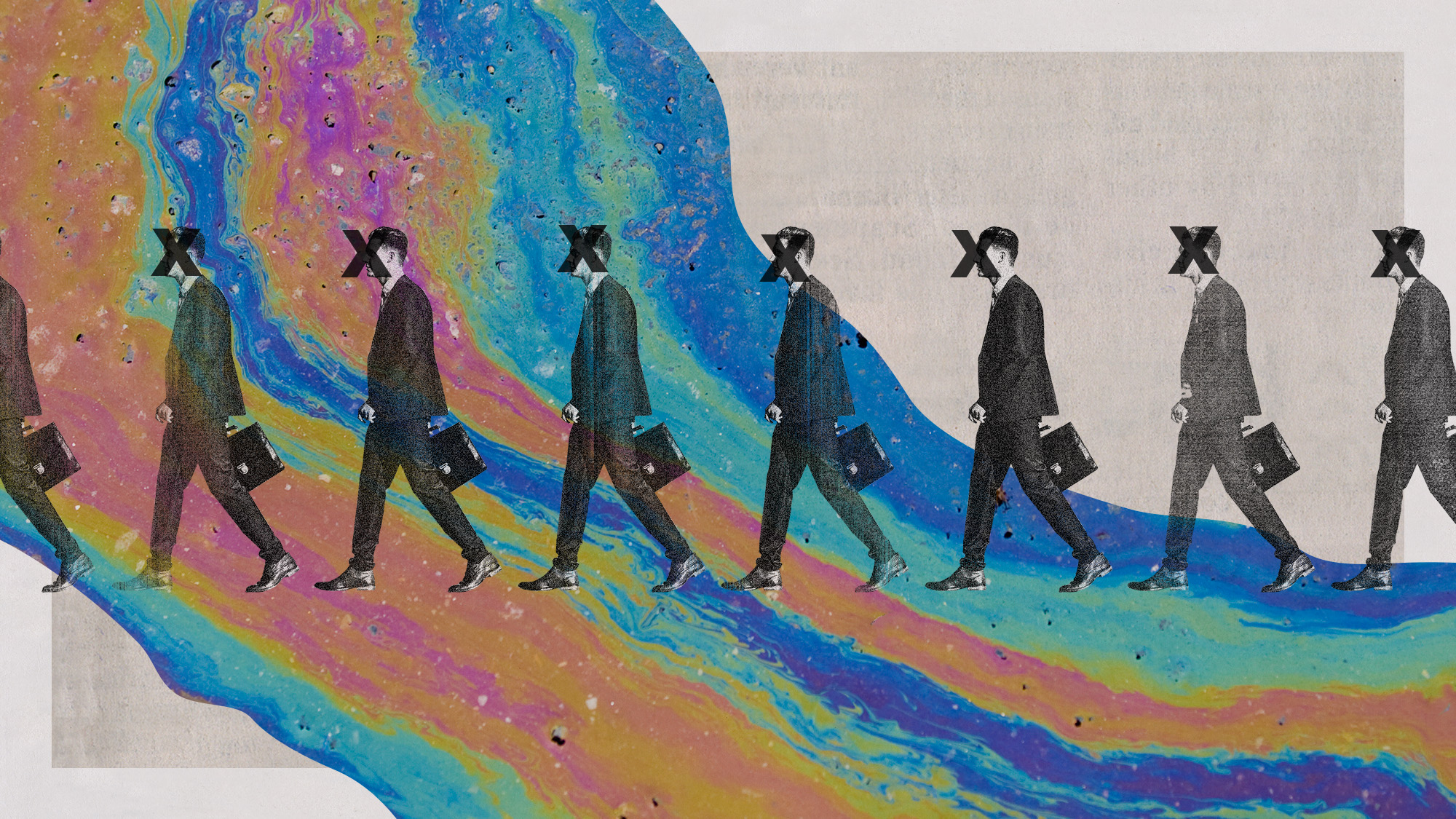Why do Russian oil bosses keep dying?
There have been 'at least 50' mysterious deaths of energy company executives since Putin ordered Ukraine invasion

A free daily email with the biggest news stories of the day – and the best features from TheWeek.com
You are now subscribed
Your newsletter sign-up was successful
Another prominent Russian businessman has died under mysterious circumstances after apparently falling out of a window, the latest in a string of similar unexpected deaths among Russian energy executives.
Mikhail Rogachev, the former vice-president of Yukos – once one of Russia's foremost oil and gas companies – was found dead at the entrance to his home in Moscow over the weekend. He was reportedly discovered by an employee of Russia's foreign intelligence agency, the SVR, with injuries characteristic of a fall. The Russian state news agency said the 64-year-old, who lived on the tenth floor, had died by suicide. Police are reportedly "studying" a suicide note, said The Times.
But these reports have been "vehemently" denied by Rogachev's relatives, said the Daily Mail. They insist there were no signs that Rogachev was suicidal, and that he was in a "good mood" before his death.
The Week
Escape your echo chamber. Get the facts behind the news, plus analysis from multiple perspectives.

Sign up for The Week's Free Newsletters
From our morning news briefing to a weekly Good News Newsletter, get the best of The Week delivered directly to your inbox.
From our morning news briefing to a weekly Good News Newsletter, get the best of The Week delivered directly to your inbox.
Unexplained tragedies
There have been "numerous" unexplained deaths of prominent Russians since Vladimir Putin ordered the invasion of Ukraine in 2022, said Newsweek. Unusually for a Russian company, Lukoil (Russia's second-largest oil producer) publicly criticised the invasion. The company's board of directors expressed "its deepest concerns about the tragic events in Ukraine" in a statement.
In May, former top Lukoil manager Alexander Subbotin died under "mysterious circumstances". The 44-year-old was found dead "in the basement of the home of a shaman", after allegedly suffering a heart attack from consuming toad poison, according to state-run Russian news agency Tass. The billionaire went to the shaman's home "in a state of severe alcoholic and drug intoxication" the day before his death, Tass reported, and his body was seemingly used for "Jamaican voodoo rituals".
In September, Ravil Maganov, the chairman of Lukoil, was found dead after falling from a hospital window in Moscow. But Lukoil said Maganov, 67, had died "after a serious illness", but did not reference his alleged fall – which "raised eyebrows among Russia watchers in the West", said The Independent.
In October 2023, Maganov's replacement Vladimir Nekrasov died aged 66 – allegedly from acute heart failure. The following month, Vladimir Lebedev, a senator with close ties to Lukoil, died in an unexplained "terrible tragedy", aged 60. Vitaly Robertus, the vice-president of Lukoil, died "suddenly" at the age of 54 in March this year. The cause of his death remains unknown.
A free daily email with the biggest news stories of the day – and the best features from TheWeek.com
Multiple businessmen linked to Gazprom, the world's largest publicly listed gas company, also "died under mysterious circumstances" either during the build-up to, or the immediate aftermath of, the invasion. In two cases the executives' wives and children were found "gruesomely hacked to death".
Since Gazprom transport chief Leonid Shulman was found dead in his bathroom near St Petersburg, just before the invasion, there have been "at least 50 deaths that could be classified as suspicious", said The Times. Alexander Tyulakov, a 61-year-old executive at Gazprom, was found dead in the garage of his St Petersburg home the morning after Russia invaded Ukraine.
Assassination by suicide
"It's a rough year to be a high-profile Russian," said Vox in 2022. There have also been multiple mysterious deaths beyond Russia's oil and gas industry. Other industry executives, as well as judges, journalists and a top Russian defence official have met mysterious ends. A "similar trend" predates the invasion: Covid-19 doctors "dying after falling from high windows early in the pandemic". Those deaths were "equally unexplained".
Political assassinations "aren't exactly unusual in Russia", said the news site. "Assassination by purported suicide is virtually a category to itself." "That ambiguity is a common theme around deaths in Russia; though there is rarely clear-cut evidence, questions surrounding the deaths of Putin critics stretch back nearly two decades."
"Whenever someone who is in a negative view of the Putin regime dies suspiciously, one should rule out foul play, not rule it in," former Moscow financier Bill Browder told Politico, after fellow prominent Putin critic Dan Rapoport fell to his death from a luxury apartment in Washington, D.C., in 2022.
"There's an old saying that anyone can commit a murder, but it takes brains to commit a suicide," said David Satter, a longtime Moscow correspondent and author of several books about Putin's Russia. "The version of suicide is for the irrelevant people who will simply accept it and move on without raising questions."
Harriet Marsden is a senior staff writer and podcast panellist for The Week, covering world news and writing the weekly Global Digest newsletter. Before joining the site in 2023, she was a freelance journalist for seven years, working for The Guardian, The Times and The Independent among others, and regularly appearing on radio shows. In 2021, she was awarded the “journalist-at-large” fellowship by the Local Trust charity, and spent a year travelling independently to some of England’s most deprived areas to write about community activism. She has a master’s in international journalism from City University, and has also worked in Bolivia, Colombia and Spain.